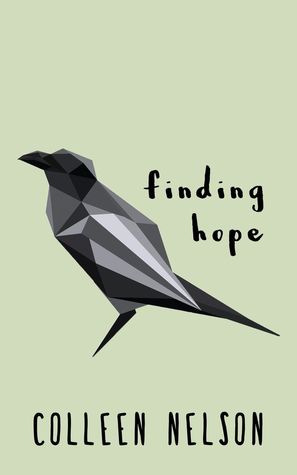Hope’s brother is a meth addict. He once had a promising future as a hockey player, but now he’s a meth addict, and she’s leaving for boarding school to get away from him, even though all she really wants is to help him. All Eric, her brother, really wants is to stay high. That’s the only way to keep his secret at bay.
There’s no preamble for a book like this because there’s no preamble in this book. Its not sugarcoated. It’s not a slow descent and a slow redemption–it starts at the bottom and only gets sadder and more complicated. But despite that–or perhaps because of its frankness–it’s never maudlin. There are hard choices, but the characters don’t sit around bemoaning them. They make them, sometimes wedging secrets further between them, and sometimes prying those secrets loose.
The book veered at times between true YA and something more middle-grade. The themes were certainly mature, with certain scenes wrenchingly explicit, but other aspects were surprisingly naive. Eric’s journey is profoundly wretched, full of the most awful deprivation and desperation. He lives in filth but sells any food and clothing at a meager price, hoping only to score. Meanwhile, Hope’s desperate romance with a boy she meets on the internet is an interesting counterpoint, ensconced as she is in a wealthy boarding school. I wonder if the author wanted to juxtapose innocence with innocence lost, or raw misery with austere fantasy.

The contrast is a little too strong at some points, and I do have to wonder how a teenager could fall for some mysterious internet boyfriend so easily. Yes, she’s alone and dealing with a broken family, and it makes sense to a certain extent that she would be overeager for any kind of support. It also makes sense that she would fall into an unhealthy relationship, given the abusive tirades and bottomless need she gets from her brother. But teens who are exposed to miserable realities are often more savvy, not less. I can certainly see arguments either way, but I was not entirely convinced by the narrative. I think twenty more pages of description and psychology could have cinched it for me, especially in a book that’s otherwise so efficient. A mere 200 pages is not a lot for this subject, especially now that Rowling the Great has proven that children and teens will read 500 or 800 just as cheerfully.
Is this a book for children, or teens, though? Usually I ignore age suggestions, since I don’t have children and I was myself a precocious and bitter child, eager for a more grown-up fantasy world that reflected my unhappy reality. Protecting children from maturity is not my place. I firmly believe that children should have the chance to read books that might be challenge or disturb them. But this book does raise questions I am not fully able to answer, since Finding Hope is at times shockingly candid. Would I have been able to handle this book when I was younger? Not easily, and maybe not at all. Did I find it compelling now, in what I suppose must be adulthood? Yes, absolutely. This may well be a new breed of YA, something meant for the contingent of us who never stopped reading it, but who also moved on past high school. It’s painful, and without pretension.
It’s also filled with poetry. Now, be warned: I am extremely picky about my poetry. I’ve studied T.S. Eliot and Shakespeare at Oxford; I read it in my spare time. So I have some idea what I’m talking about when I say that this is some good poetry. Like the narrative, it’s raw. It’s rough. The brevity and formlessness of each poem makes them urgent and a bit wild. I can believe that a teenager wrote it, but that’s not a disparagement, it’s just a testament to Colleen Nelson’s ability to create strong voices for her characters. If I were a teenager, I would have written a few of these out to layer on my walls, just like Hope does.
But I’m an adult, and I still read YA. I still think that this age, and books about it, is potent and meaningful, and both Hope and Eric’s journeys are particularly excellent examples of this. YA nerds both of the intended audience or the adult geek variety will find something bittersweet and ultimately hopeful here.
Finding Hope will be released March 19.
